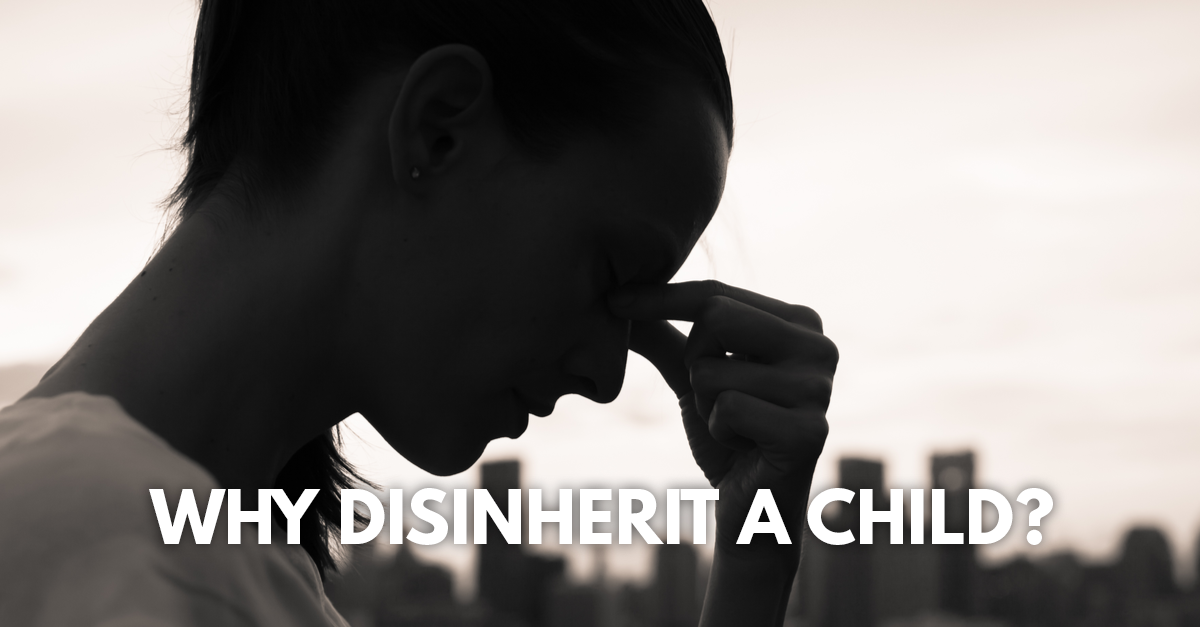
What are some of the reasons why a parent might disinherit a child? A lot of times we think that a parent will disinherit a child because a child was bad: the child was abusive to the parent, or became a drug addict, or acted irresponsibly somehow. That certainly can be the basis for a child being disinherited. But there are a lot of other reasons, too.
The Child Doesn’t Need the Money
For example, sometimes a parent will disinherit a child if the parent thinks that the child doesn’t need the money. If one child is highly successful and the other child isn’t, the parent might decide to help the child who is not as successful. The parent may reason that the one child could use the help while the other child who is very successful has plenty of money and doesn’t need an inheritance. The problem with that is it can be misinterpreted. While the parent thinks that he or she is doing something that is perfectly reasonable and a good thing to do, the child who is disinherited may feel that he or she was not loved or respected. It would be much better if the parent would have a discussion with the children and at least explain why he or she is taking this approach and try to get some agreement between the children that it is an acceptable thing to do.
Qualifying for Income-Based Benefits
Another reason why a parent might disinherit a child is if the parent thinks that the child is qualifying for income-based government benefits and the parent doesn’t want to disrupt that by leaving them money. Or maybe the child is going through a bankruptcy, or a divorce, and the parent’s intention is to protect the child by not leaving him or her anything at present. The parent may decide to leave the child’s inheritance to their brother or sister and let the brother or sister hand them some money when they need it. That’s a terrible idea, an absolutely terrible idea. Number one, it forces the child who receives all the money to be his or her brother’s keeper. That is never a good idea. In addition, there is no guarantee that the child who receives the assets will share them with the other child. It is much better to set up an estate plan using a trust. Place the child’s share of the estate in trust for their benefit. Name a professional trustee. Allow the child to get assets when the time is right. But don’t give the assets to the other children and hope that they will share. That just never works out. It’s a horrible idea.
I really want you to know that even if you are disinherited from your parent’s estate, that doesn’t mean that the parent didn’t love you. There’s a lot of different reasons why a parent may choose to disinherit a child. It could be that the parent didn’t intend to do that at all. Instead, the parent was unduly influenced or lacked capacity at the time the decision was made or acted upon. Just because there is a disinheritance, it doesn’t necessarily mean that there’s a lack of love or respect. The parent may have intended to do something that he or she thought was good, not realizing that it would have a negative impact on the family.
